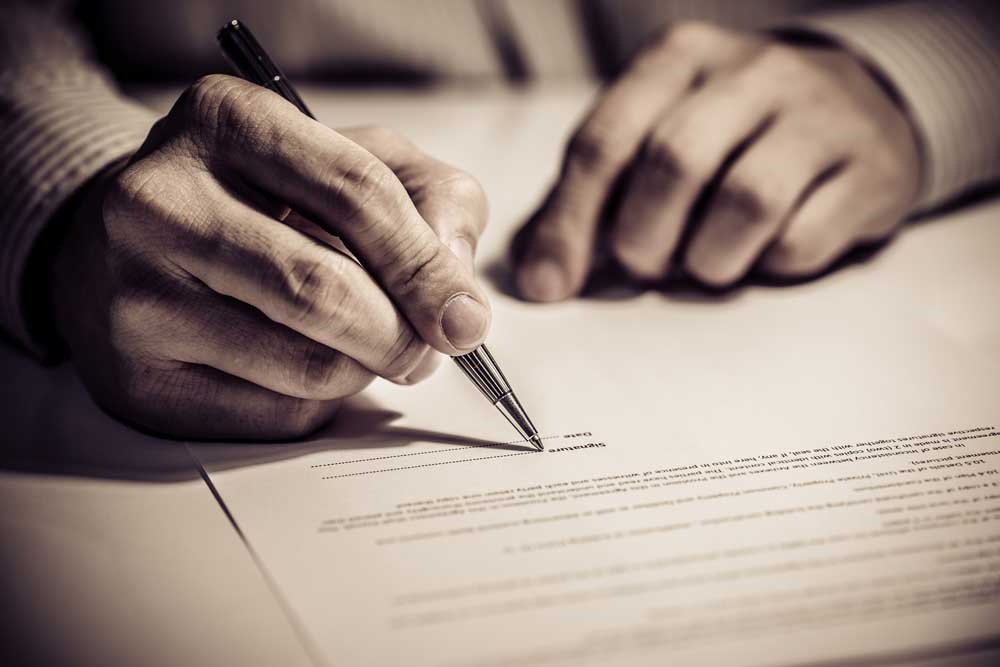 Last updated: February 26th, 2021 11:49 AM
Last updated: February 26th, 2021 11:49 AM
Power of Attorney - Drafting and Stamp Duty
Power of Attorney is a legal document by which, a person who is himself competent to do certain acts, gives the authority to another person to perform such acts in his name and on his behalf. Power of Attorney is also known as kulmukhtyarpatra, mukhtyarpatra, mukhtyarnama, vatmukhtyar, aammukhtyarpatra etc. in India. In a Power of Attorney, the person giving authority/rights is called as 'Principal' and the person to whom authority is given is called 'Attorney Holder'. Power of Attorney can be classified as a General Power of Attorney or Special Power of Attorney.General Power of Attorney
In a general Power of Attorney, the executor of Power of Attorney (Principal) authorizes the Power of Attorney holder to perform any nature of activity in the context of his immovable and movable property in his name and on his behalf. If a General Power of Attorney given to father, mother, brother, sister, wife, husband, son, daughter, grandson, granddaughter or any near relative, without any consideration, then Stamp Duty of Rs. 500/- is only applicable for registration. In case, General Power of Attorney given to a person other than close relative and/or for consideration, then stamp duty is payable as per the market value of the property or the consideration, whichever is higher. In addition to the stamp duty, a registration fee of Rs.100 is applicable if the Power of Attorney given without consideration in the name of the father, mother, brother, sister, wife, husband, son, daughter, grandson or granddaughter or a near relative. In any other case, the registration fee is payable at the rate of Rs.10/- per Rs. 1000/- with a minimum of Rs. 100/- and a maximum fee of Rs. 30,000/- on the market value of property or consideration, whichever is higher.Special Power of Attorney
In a Special Power of Attorney, the Principal authorizes someone to perform limited activities on his/her behalf or confers limited rights. Stamp Duty payable for Special Power of Attorney is Rs. 100/-.Executing Special Power of Attorney
If the Principal is conferring Power of Attorney while staying in India: At the time of executing Power of Attorney, the Principal has to present himself along with the Power of Attorney before the Sub Registrar in whose jurisdiction he/she is residing and has to sign the Power of Attorney before that Sub Registrar and the concerned Sub Registrar authenticates it saying that the said party has signed in his presence. If the Principal conferring Power of Attorney is not staying India: At the time of executing Power of Attorney, the Principal signs the Power of Attorney in the presence of the Competent Authority of the country where he is residing which includes Public Notary/ Judicial Court/Judge/ Magistrate/Indian Counsel or Vice Counsel or Representative of Central Government and such Competent Authority gives authentication that the said party has signed before him.For the drafting of Power of Attorney or legal assistance, visit IndiaFilings.com. Read more about the Power of Attorney.
Popular Post

In the digital age, the convenience of accessing important documents online has become a necessity...

The Atalji Janasnehi Kendra Project that has been launched by the Government of Karnataka...

The Indian Divorce Act governs divorce among the Christian couples in India. Divorce...

When an individual has more than a single PAN card, it may lead to that person being heavily penalised, or worse,...

Employees Provident Fund (PF) is social security and savings scheme for employee in India. Employers engaged...


